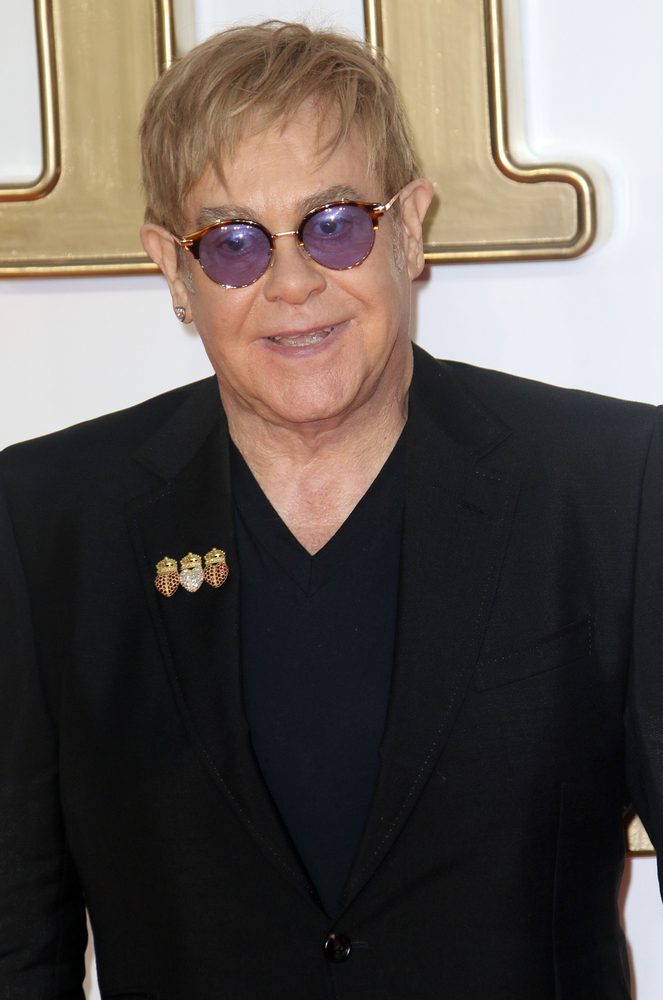In a candid TIME magazine interview that has ignited fierce debate across social media, music icon Elton John has taken an unexpected stance against marijuana legalization in North America. The legendary performer, known for his flamboyant stage presence and chart-topping hits, expressed deep concerns about the widespread acceptance of cannabis, drawing from his personal battles with substance abuse.
From addiction to advocacy
The “Rocket Man” singer’s journey through the dark corridors of addiction spans decades, shaping his current perspective on substance use. After conquering his own demons with alcohol and drugs, John has emerged as a vocal advocate for sobriety. His transformation from a substance-dependent artist to a clear-minded performer has given him a unique vantage point on the current wave of marijuana legalization.
Personal experience fuels concern
John’s apprehension about marijuana stems from firsthand experience with substance abuse. The celebrated musician argues that cannabis can serve as a gateway to more dangerous substances, reflecting on his own path to addiction. His perspective challenges the current narrative surrounding marijuana’s safety and recreational use.
The evolving landscape of legalization
The timing of John’s comments coincides with a significant shift in North American drug policy. As states and provinces continue to embrace cannabis legalization, the contrast between public policy and personal testimonies like John’s becomes more pronounced. The artist’s stance raises important questions about the long-term implications of these legislative changes.
Impact on public health and society
Drawing from his own experiences, John emphasizes the potential risks associated with normalized cannabis use. The musician’s concerns extend beyond individual use to broader societal implications, including the impact on mental health, decision-making, and personal relationships. His story serves as a cautionary tale about the potential consequences of substance use.
Industry response and public debate
The entertainment industry’s reaction to John’s statements reflects the complex nature of the marijuana legalization debate. While some industry figures support his perspective, others argue that his views may be colored by his personal struggles rather than reflecting current scientific understanding of cannabis use.
Medical community perspectives
Healthcare professionals have weighed in on the debate, offering varying viewpoints on marijuana’s potential risks and benefits. Some support John’s concerns about addiction potential, while others emphasize the importance of distinguishing between responsible use and substance abuse. This medical discourse adds another layer to the complicated narrative surrounding cannabis legalization.
Youth and vulnerable populations
John’s comments have sparked discussions about protecting vulnerable populations, particularly young people, from potential substance abuse issues. His emphasis on the gateway effect of marijuana has resonated with parents and educators concerned about adolescent drug use in an era of increasing cannabis accessibility.
Legislative implications
The artist’s stance poses challenging questions for policymakers who have championed marijuana legalization. While many jurisdictions have moved forward with cannabis reform, John’s testimony adds to the ongoing debate about regulatory frameworks and public health safeguards.
The role of celebrity influence
As a globally recognized figure, John’s position on marijuana legalization carries significant weight in public discourse. His status as a recovered addict lends credibility to his concerns, even as supporters of legalization challenge his viewpoint. This dynamic highlights the complex relationship between celebrity influence and public policy debates.
Future considerations
The controversy surrounding John’s statements underscores the need for continued research and dialogue about marijuana’s societal impact. As more regions consider cannabis legalization, the balance between personal freedom and public health remains a central concern in policy discussions.
A call for balanced approach
While John’s perspective stems from personal experience, it contributes to a broader conversation about responsible substance use and addiction prevention. His story emphasizes the importance of considering multiple viewpoints in the ongoing debate about marijuana regulation and its place in society.
















